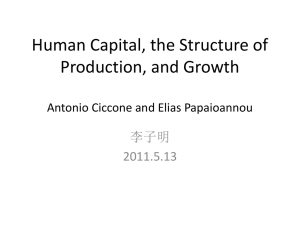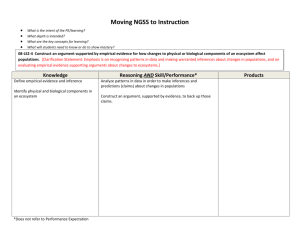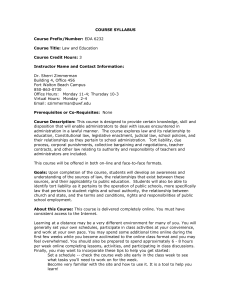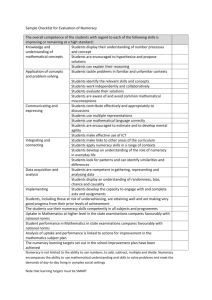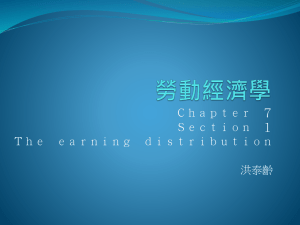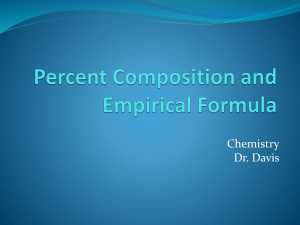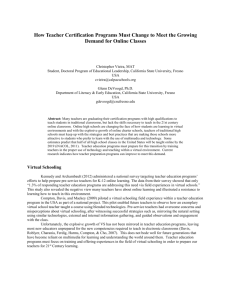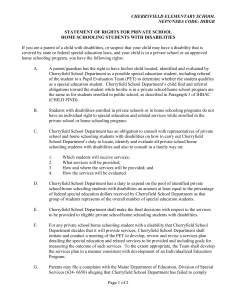More INFO - North
advertisement
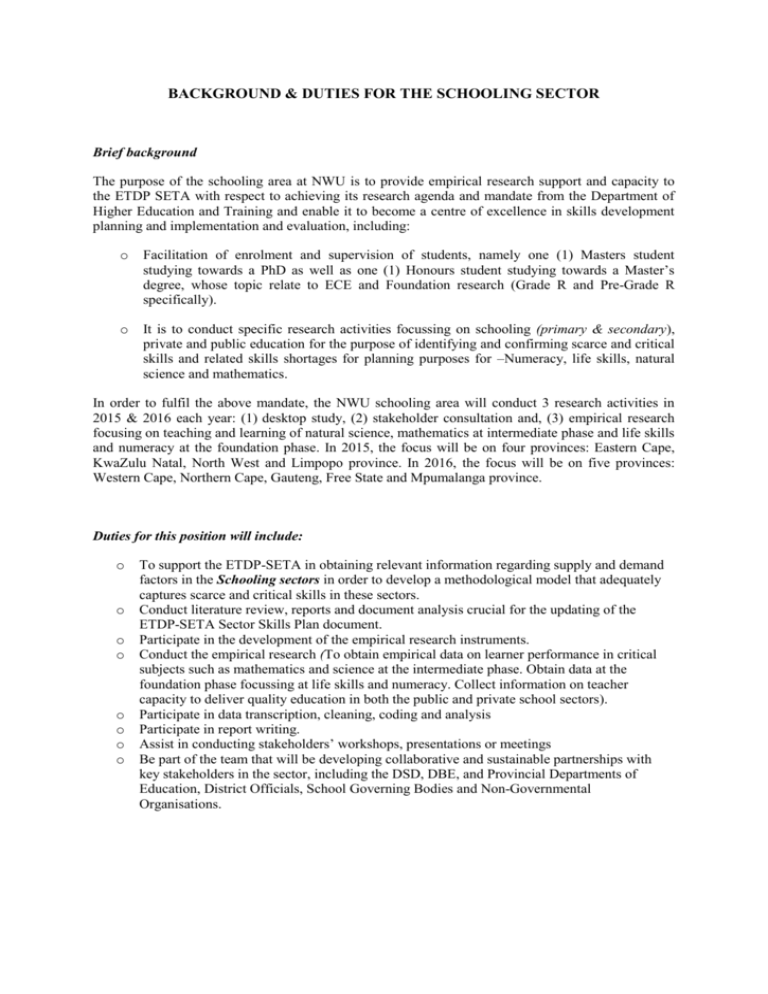
BACKGROUND & DUTIES FOR THE SCHOOLING SECTOR Brief background The purpose of the schooling area at NWU is to provide empirical research support and capacity to the ETDP SETA with respect to achieving its research agenda and mandate from the Department of Higher Education and Training and enable it to become a centre of excellence in skills development planning and implementation and evaluation, including: o Facilitation of enrolment and supervision of students, namely one (1) Masters student studying towards a PhD as well as one (1) Honours student studying towards a Master’s degree, whose topic relate to ECE and Foundation research (Grade R and Pre-Grade R specifically). o It is to conduct specific research activities focussing on schooling (primary & secondary), private and public education for the purpose of identifying and confirming scarce and critical skills and related skills shortages for planning purposes for –Numeracy, life skills, natural science and mathematics. In order to fulfil the above mandate, the NWU schooling area will conduct 3 research activities in 2015 & 2016 each year: (1) desktop study, (2) stakeholder consultation and, (3) empirical research focusing on teaching and learning of natural science, mathematics at intermediate phase and life skills and numeracy at the foundation phase. In 2015, the focus will be on four provinces: Eastern Cape, KwaZulu Natal, North West and Limpopo province. In 2016, the focus will be on five provinces: Western Cape, Northern Cape, Gauteng, Free State and Mpumalanga province. Duties for this position will include: o o o o o o o o To support the ETDP-SETA in obtaining relevant information regarding supply and demand factors in the Schooling sectors in order to develop a methodological model that adequately captures scarce and critical skills in these sectors. Conduct literature review, reports and document analysis crucial for the updating of the ETDP-SETA Sector Skills Plan document. Participate in the development of the empirical research instruments. Conduct the empirical research (To obtain empirical data on learner performance in critical subjects such as mathematics and science at the intermediate phase. Obtain data at the foundation phase focussing at life skills and numeracy. Collect information on teacher capacity to deliver quality education in both the public and private school sectors). Participate in data transcription, cleaning, coding and analysis Participate in report writing. Assist in conducting stakeholders’ workshops, presentations or meetings Be part of the team that will be developing collaborative and sustainable partnerships with key stakeholders in the sector, including the DSD, DBE, and Provincial Departments of Education, District Officials, School Governing Bodies and Non-Governmental Organisations.


